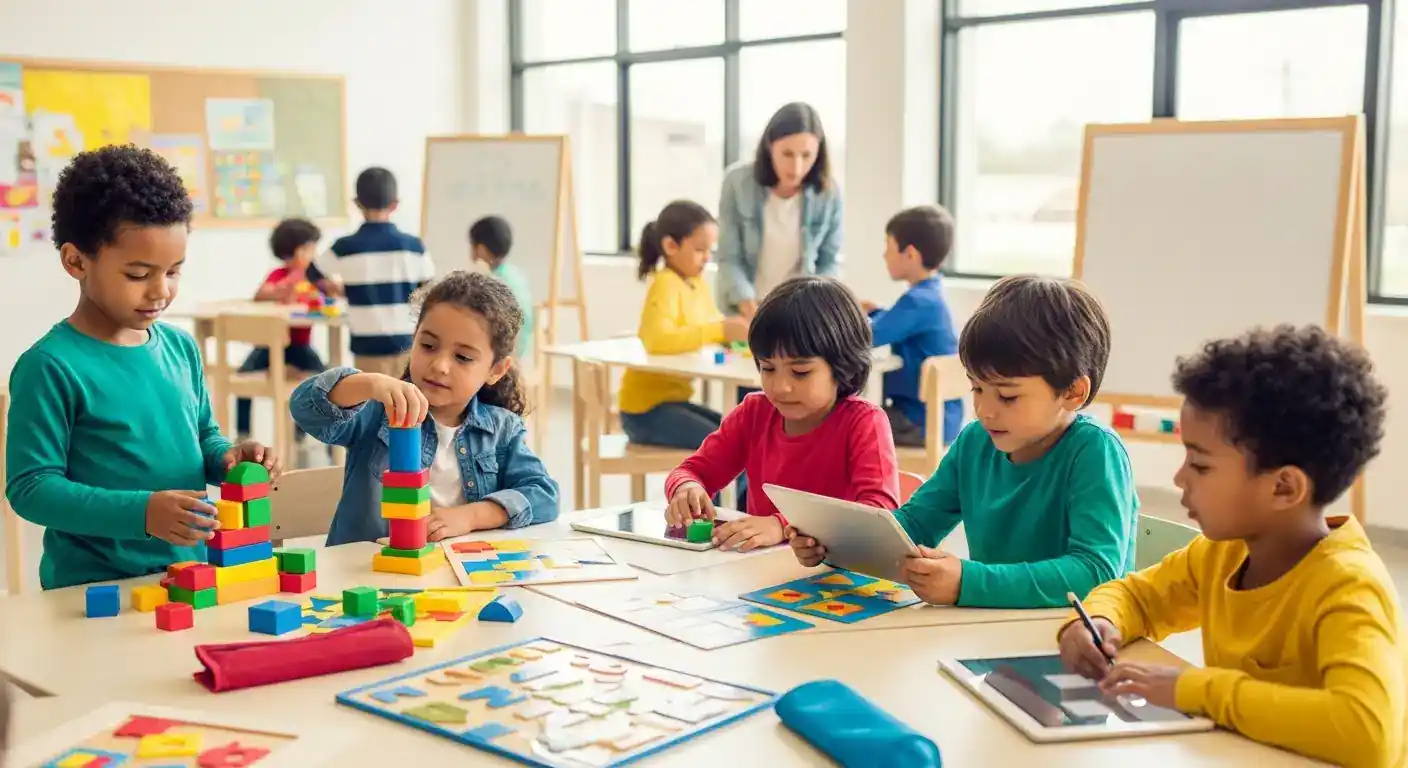Building Social Skills: Activities for Children with Special Needs

Social skills are crucial for navigating everyday life, and this is especially true for children with special needs. This article explores practical activities and strategies to help these children develop and strengthen their social skills. We'll cover various techniques, from structured play to role-playing, offering valuable insights for parents, educators, and caregivers.
Key Points:
- Tailored Activities: Discover activities adapted to individual needs.
- Practical Strategies: Learn effective techniques for skill development.
- Expert Insights: Benefit from evidence-based advice and real-world examples.
- Improved Communication: Foster better interaction and understanding.
- Enhanced Confidence: Build self-esteem and social competence.
Building Social Skills in Children with Autism
Children with autism often face unique challenges in social situations. Activities focusing on social skills development for children with autism can significantly improve their ability to interact and communicate. Structured play dates, where a specific social skill like turn-taking is emphasized, can be highly beneficial. Visual aids, such as social stories, can also help children understand social expectations.
Developing Social Skills through Play
Play is a natural and engaging way for children with special needs to learn and practice social skills. Board games, for example, teach valuable lessons about turn-taking, following rules, and handling wins and losses gracefully. Similarly, collaborative games encourage teamwork and communication. Role-playing different social scenarios can also prepare children for real-life interactions.
Social Skills Activities for Children with Intellectual Disabilities
Children with intellectual disabilities may benefit from activities that break down complex social situations into smaller, manageable steps. Using visual cues and simple instructions can make learning easier. Repetitive practice and positive reinforcement are also crucial for building confidence and mastery. Social skills groups can provide a supportive environment for children to practice interacting with their peers. A 2024 study published in the Journal of Intellectual Disability Research demonstrated the effectiveness of peer-mediated interventions in improving social skills.
Enhancing Social Communication Skills
Communication is a fundamental aspect of social interaction. Activities that focus on improving both verbal and non-verbal communication are essential. For instance, teaching children to make eye contact, use appropriate body language, and understand facial expressions can significantly enhance their social interactions. Practicing conversations in a safe and supportive environment can also boost their confidence. Another valuable resource is the book "Social Skills Training for Children" (2023), which provides practical strategies for parents and educators.
Building Social Confidence in Children with Special Needs
Building self-esteem is critical for successful social interaction. Activities that celebrate individual strengths and foster a sense of belonging can help children develop social confidence. Encouraging participation in group activities, providing opportunities for leadership roles, and offering positive feedback can significantly impact a child's self-image. The "Special Needs Inclusion Handbook" (2025) offers valuable insights into creating inclusive environments that promote social and emotional well-being.
Differentiated Content:
Focus on Sensory Considerations: This article specifically addresses the sensory sensitivities common in children with special needs and how to adapt activities accordingly. This is often overlooked in general social skills advice.
Emphasis on Individualized Approaches: This article stresses the importance of tailoring activities to each child’s unique needs and abilities, recognizing that a one-size-fits-all approach is ineffective.
Internal Linking Strategy:
- Anchor Text: social skills development for children with autism, Target Page: /articles/social-skills-development-for-children-with-autism (related article)
- Anchor Text: social skills groups, Target Page: /articles/benefits-of-social-skills-groups-for-children (related article)
- Anchor Text: Social Skills Development, Target Page: /categories/social-skills (category)
FAQ Section:
Q: How can I help my child with special needs initiate conversations? A: Start by teaching simple greetings and opening lines. Role-playing can be helpful. Use visual aids like conversation starters on cards. Provide opportunities for practice in different settings. Celebrate even small successes to build confidence.
Q: What are some good social skills activities for nonverbal children? A: Focus on non-verbal communication like using picture cards, sign language, or assistive technology devices. Engage in activities that promote shared attention and joint engagement. Encourage turn-taking in play and other interactions.
Q: How can I create a supportive environment for social skills development at home? A: Establish clear expectations and routines. Provide a predictable and structured environment. Offer praise and encouragement for positive social interactions. Model appropriate social behavior. Create opportunities for social interaction with family and friends.
Q: How do I know if my child is ready for more challenging social situations? A: Observe your child’s comfort level and progress in less demanding settings. Gradually introduce new challenges, providing support and guidance. Look for signs of increased confidence and independence. Consult with therapists or educators for personalized recommendations.
Conclusion:
Building social skills is an ongoing process that requires patience, understanding, and consistent effort. By implementing the activities and strategies outlined in this article, you can empower children with special needs to develop meaningful connections, navigate social situations with greater ease, and achieve their full potential. We encourage you to share your experiences and questions in the comments below. For further reading, explore resources on inclusive education and social-emotional learning. Subscribe to our newsletter for more tips and updates on supporting children with special needs. This article is intended to be updated bi-annually to reflect the latest research and best practices.
Expandable Subtopics:
- Adapting Social Skills Activities for Specific Diagnoses
- The Role of Technology in Social Skills Development
- Supporting Social Skills Development in the Classroom